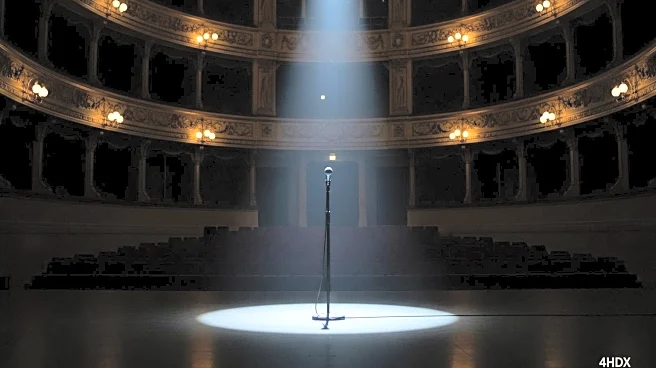What is the story about?
What's Happening?
Dave Chappelle's recent comment at the Riyadh Comedy Festival has ignited a significant debate in the U.S. entertainment industry. On October 2, 2025, Chappelle stated, 'It’s easier to talk here than it is in America,' during his performance in Saudi Arabia. This remark has drawn both condemnation and defense from fellow comedians and the public. The controversy centers around the balance between free speech and the ethical implications of performing in countries with restrictive speech laws. Critics argue that accepting payment from such venues is a political act, while supporters emphasize the importance of cultural exchange and reaching live audiences.
Why It's Important?
The incident highlights ongoing tensions in the U.S. regarding free speech and the responsibilities of public figures. Chappelle's comment has polarized opinions, with some viewing it as a critique of cancel culture in America, while others see it as a problematic endorsement of a regime with strict speech limitations. This debate is significant as it challenges comedians and artists to consider the ethical implications of their performance venues. The controversy also underscores the broader cultural and political dynamics at play when U.S. entertainers engage with international audiences, particularly in regions with differing views on free speech.
What's Next?
The fallout from Chappelle's comment is likely to influence future booking decisions for comedians and other performers. Promoters may face increased scrutiny when organizing international events, and artists might be pressured to justify their participation in such festivals. This incident could lead to more public discussions about the ethical considerations of performing in countries with restrictive speech laws. Additionally, audiences may begin to demand more transparency from entertainers regarding their choices of venues and the messages they convey.
Beyond the Headlines
This controversy raises questions about the role of art in political discourse and the responsibilities of artists as cultural ambassadors. It also highlights the potential for comedy to serve as a platform for challenging societal norms and sparking important conversations about freedom of expression. The incident may prompt a reevaluation of how comedians navigate the complex interplay between artistic freedom and ethical accountability in a globalized world.















